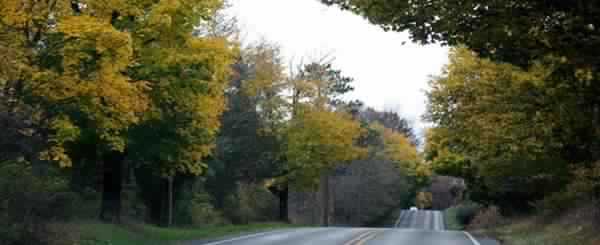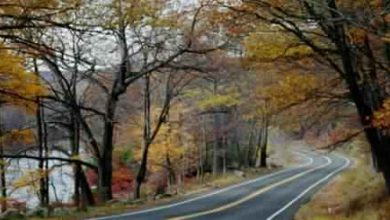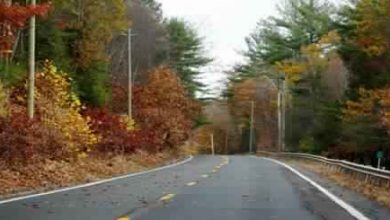PART 5 – PURPOSE AND WISDOM OF THE CREATOR

Good v Evil
Allah is the ultimate Creator and He creates whatever He wishes. Amongst His creations are angels, jinn and human beings, each one of these endowed with different qualities.
Angels are created from light (although they are not light). They are the perfect slaves of Allah with the attribute of constant worship. They do not have any free choice, and therefore have no ability to disobey or rebel. Angels are not subject to emotions, desires, temptation or the capacity to do evil. They are wholly submissive to Allah, each one a diligent slave of Allah. In their natural form, angels are unseen to the human eye.
Jinn (Satan or the devil) are created from the tip of a flame, the part which flickers and is unstable (although they are not fire). They have been granted the freedom of choice. Some of them have good qualities, but most of the jinn are disobedient and arrogant to the Creator. The disobedient of the jinn are called Shaitan (Satan) because of their evil qualities. In their natural form, jinn are invisible to the human eye.
Human beings are created from clay, although they are not clay. Humans can be good or evil, soft or hard, kind or cruel, generous or stingy in nature. Each individual has different attributes. Human beings can be good or bad depending on how much of the jinn and their natural temptations that they submit to. The human being constantly battles to overpower his evil qualities so as to be closer to the angels in submission and behaviour.
The battle between good and evil influences our personal behaviour, and this impacts the rest of the world.
Allah created both good and evil as a trial for us:
“And We have made some of you as trial for others: will you have patience? And your Lord is Ever All-Seer (of everything).” (Al-Qur’an, v 25:20)
This is one of the fundamental beliefs and purposes of creation. The Creator has placed us on earth to check our choices. We have the straight path, which that of obedience and submission. We also have the crooked and deviant path, which is to obey our desire and that of the jinn. Only those who stay on the correct path are protected from the persuasions of the devil and the reckless behaviour of our desires, but this is an ongoing struggle for everyone.
Allah SWT has granted both human being and jinn levels of power, knowledge, and weakness. He tells us “if you come to Me and seek My Guidance I will give you power and knowledge to overcome your weakness.” If we choose otherwise, we will become selfish, disobedient, prone wrongdoing, and ultimately be weakened. The deviant path places us in darkness and uncertainty, bereft of happiness or tranquility in this life or the hereafter.
The Qu’ran clearly states the consequences of each path. However the choice is ours.
What About Natural Disasters?
What is the connection between good and evil with the calamities of this world, such as natural disasters and famine?
Allah has provided ample resources for everyone on earth to live in comfort. However, these resources are often monopolized by the rich. They do not reach the poor because of the failure to distribute them fairly. As a simple example, up to a third of the food in the average household goes to waste. On a larger level, it is undisputed fact that many nations destroy surplus agricultural produce in order to regulate their prices .
The disparity between the rich and the poor is an ever-widening rift, whether amongst individuals or between nations, with the rich getting more dominant, abusive, greedy and selfish. Even where there are attempts to aid the less fortunate, many of these attempts are thwarted by corruption, red tape and political agendas. The rich minority control the majority of resources to protect their own and to maintain their balance of power.
The uneven distribution of resources is attributed to the injustice and selfishness of human beings, causing oppression against each other. The Creator is not to be blamed for this. Yet, He allows these infringements to occur as a trial for both the rich and the poor, to assess which path we will go.
If we are the weak ones, can we be thankful and patient when resource are lacking? If we are rich, do we have the compassion and justice to sacrifice and distribute to the needy, or are we to continue with our greed and selfishness?
Similarly, tsunamis, volcanoes, earthquakes, floods, droughts, lightning and fire can cause high casualties and are beyond our control. This is why, even in business contracts, these unpredictable and damaging occurrences are legally classified as “acts of God”.
Life has certain truths, including that all life must end, and all things must perish eventually. Some of happen through natural calamities.
When assessing God’s justice, one takes into account what happens in this world as well as what happens in the hereafter. The ignorant tend to conclude based on what is tangible, without full knowledge of what the next world contains and how apparent “injustice” in this world is redressed. This is why they think that natural calamities are the works of a cruel and vengeful (or even absent) deity.
In Islam things are always viewed from a different, more encompassing and long term angle. In reality, Allah deprives us in this world to reward us in the hereafter, depending on our reactions to the circumstances, not the circumstances themselves.
“Blessed be He in Whose Hand is the dominion; and He is Able to do all things. Who has created death and life that He may test you which of you is best in deed.” (Al-Qur’an verse 67:1 – 67:2)




